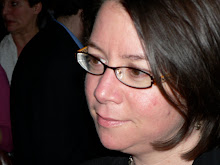Rachel: Aaron, Jordan has homework he has to do first -- he has to read Trump's 100-day plan and comment on it.
[I admit I used a tone implying that this was a chore, because, well, ugh.]
Jordan: Mommy, I want to correct that. I get to read it. It's not have to read it. I mean I do, but I actually want to read it.
Rachel: Oh yeah?
Jordan: Yes! I think it is great that I am reading this. I love how my classes are not only about the history of a long time ago but also the history of now. I think it's awesome that I am learning about things that are happening right now, because these are things where maybe I could make a difference. If I learn about them then I can participate. And even when we learn about things from a long time ago, it is so that we can understand more about something that is happening right now. That is really engaging for me. It makes me care about it. And also I care because the class is actually about our own ideas. For the Trump homework I have to say if there are some things I might agree with, and some others I disagree with, and in class we talk about what we think and why.
I think in addition to caring, he feels respected by this approach: feels that he is being invited into the world of people who make things happen and make a difference to how things are.
My history... describes the inspiring struggle of those who have fought slavery and racism (Frederick Douglass, William Lloyd Garrison, Fannie Lou Hamer, Bob Moses), of the labor organizers who have led strikes for the rights of working people (Big Bill Haywood, Mother Jones, César Chávez), of the socialists and others who have protested war and militarism (Eugene V. Debs, Helen Keller, the Rev. Daniel Berrigan, Cindy Sheehan). My hero is not Theodore Roosevelt, who loved war and congratulated a general after a massacre of Filipino villagers at the turn of the century, but Mark Twain, who denounced the massacre and satirized imperialism.
I want young people to understand that ours is a beautiful country, but it has been taken over by men who have no respect for human rights or constitutional liberties. Our people are basically decent and caring, and our highest ideals are expressed in the Declaration of Independence, which says that all of us have an equal right to “life, liberty, and the pursuit of happiness.” The history of our country, I point out in my book, is a striving, against corporate robber barons and war makers, to make those ideals a reality — and all of us, of whatever age, can find immense satisfaction in becoming part of that.
I notice that whatever I have learned about this progressive version of history, I learned long after learning the so-called "regular" version traditionally taught in white middle-class america, about winning wars and conquering territory and creating giant industries. I learned this colonialist version as the "real story" and the struggle against oppression as an "alternative," or maybe a nuance or complication to be added on to the real story. Jordan, however, is learning a version of history in which the stories of marginalized people are moved more to the center - and he's learning it first. I have to think this will make a difference for him, even though of course his learning is still taking place in a world largely defined by the colonialist narrative.
I wrote to Jordan's teacher telling her about the conversation and thanking her for her awesome work. Right? Right.



No comments:
Post a Comment